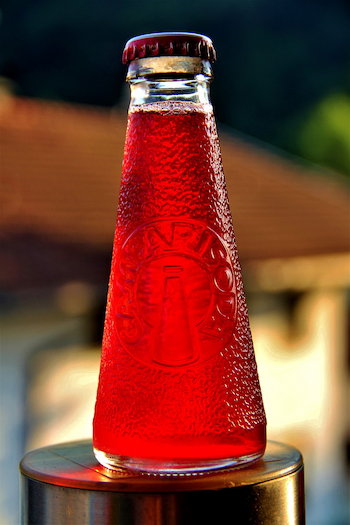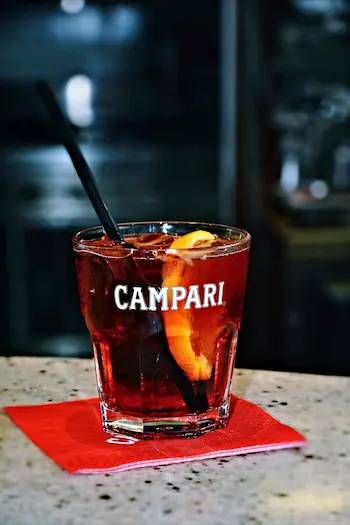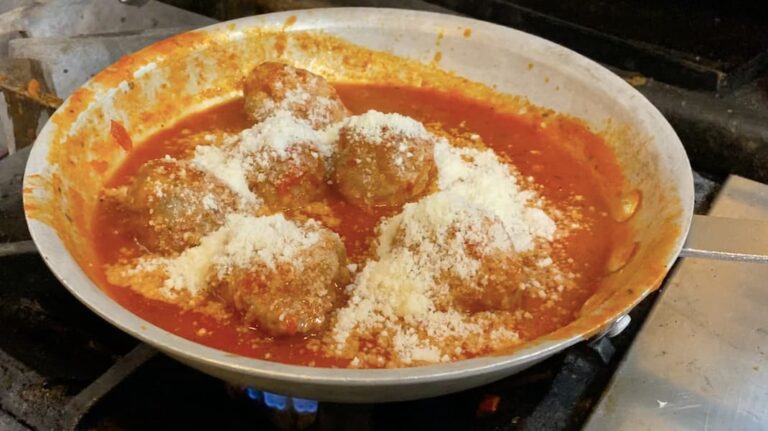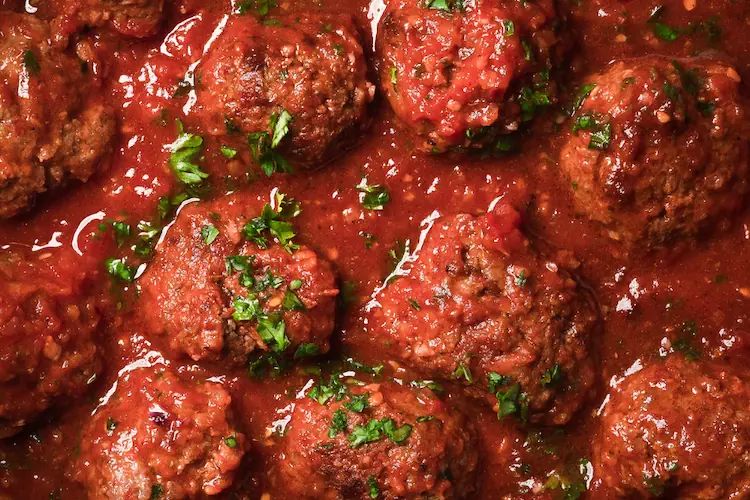Negroni is a testament to Italian creativity in mixology, blending gin, vermouth, and Campari into a symphony of flavors. It has reached worldwide fame for its unique balance of bitterness and sweetness, captivating connoisseurs and casual drinkers alike.Here’s how to craft this timeless cocktail!
A bit of history
This classic Italian drink was invented in 1920 in Florence by Count Camillo Negroni.
The count used to attend a high-end café called Caffè Casoni and often drank a cocktail called Americano, which was made with Campari, vermouth and seltzer. One day, after returning from a trip to London, he asked the bartender to change the recipe by replacing the seltzer with gin.
This new recipe soon became known as “Count Negroni’s fancy Americano,” and was later named after the count himself.
Since then, this drink has become world-famous and has spawned countless variations. Now I will show you how to make it at home and how to customize it to your taste.

The perfect Negroni: basic ingredients and alternatives
Gin: when making Negroni, the most common choice is a London Dry Gin like Tanqueray or Bombay Sapphire. However, if you like making experiments, you can try out other alternatives, with different blends of botanics.
There are many Negroni variants that replace gin with other liquors. If you use white rum, you can make a Bencini. With a bourbon whiskey you’ll get a Boulevardier. And of course, there’s the Negroni Sbagliato, which is made by replacing gin with a sparkling brut (most usually Prosecco).
Campari: this is the official bitter used for Negroni. It has a strong flavor and an intense red color. If you want, you can try other brands, like Select or Martini Bitter.
Some people also like to use Aperol, as it has a sweeter flavor and a lower alcohol level. However, this choice will significantly change the final taste of your cocktail. In fact, if you ask for a drink that can be made with either Campari or Aperol in Italy, the bartender will usually ask you which one you prefer. So, I recommend trying out other bitters first.
Red Vermouth: Red vermouth is a sweet fortified wine that originated in Piedmont. If you don’t mind spending, Carpano Antica Formula and Martini Riserva Speciale Rubino are both excellent choices. If, on the other hand, you’re on a budget, Cinzano Rosso is a very valid alternative. Other good choices are Carpano Classico and Vermouth Cocchi Storico, which has a distinctive hint of vanilla.
A slice of orange, or an orange peel: every bartened has their own way of garnishing Negroni. Orange slices and peels are the most common choices. However, feel free to use other alternatives like lemons or grapefruit peels.
Ice, a glass and a bartender spoon: Negroni is usually served in a tumbler glass. Since these glasses are not very tall, you can use a normal teaspoon if you don’t have a bartender spoon. The ice should be added after pouring the ingredients and before stirring, as doing otherwise could dilute them excessively.

When making Negroni, the rule of thumb is to use the three main ingredients in equal measures.
However, you’ve seen how they’re all made by mixing lots of herbs? Every producer has their own unique blend – so, depending on which brand of each you choose, you might have to adjust the recipe to find the right balance.
Start with the following recipe card to get acquainted with this classic Italian drink, and then make it yours by trying different amounts and varying the types of gin, bitter and vermouth.
Have fun!

Authentic Italian Negroni
5 Stars 4 Stars 3 Stars 2 Stars 1 Star
No reviews
- Author: Mortadella Head
- Total Time: 5 minutes
- Yield: 1 1x
Ingredients
3 cl London Dry Gin (1 oz)
3 cl Campari bitter (1 oz)
3 cl Red Vermouth (1 oz)
A slice of orange or an orange peel
Ice to taste
Necessary tools:
a glass (preferably a tumbler)
a bartender spoon or a teaspoon
Instructions
- Start by mixing Campari, vermouth and gin in the tumbler glass.
- Add the ice.
- Stir for 20 to 30 seconds.
- Garnish with the orange peel/slice.
- Enjoy.
- Prep Time: 5 Mins
- Category: Cocktails
- Cuisine: Italian









